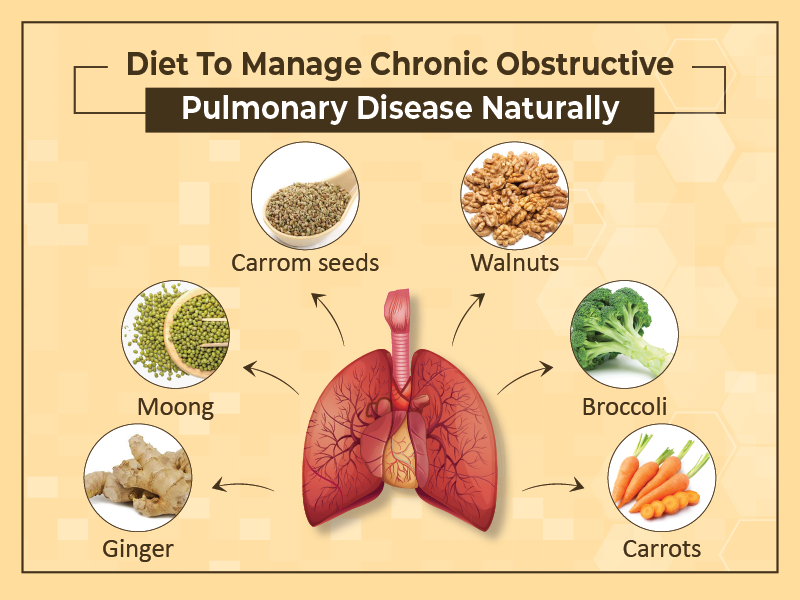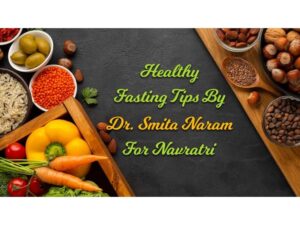
It comes as a surprise to most people to learn that what they eat may affect their breathing. Food serves as fuel for your body’s activities. You can breathe easier if you eat enough of the right nutrients. A varied diet will provide you with all the necessary nutrients—no single food will do.
At Ayushakti, our healthcare team will devise a customized meal plan. You can get back on track by meeting with a dietitian nutritionist . Visit Ayushakti Ayurved to manage COPD naturally from it root cause.
How does breathing relate to food?
Metabolism is the body’s process of converting food into fuel. The process’s raw materials are oxygen and food, and the finished products are energy and carbon dioxide. We exhale carbon dioxide, a waste product.
You can breathe easier if you eat enough of the right nutrients.
Digestion of carbs produces the most carbon dioxide for how much oxygen is utilized; Fat metabolism produces the fewest products. A diet with fewer carbohydrates and more fat helps some people with COPD breathe easier.
Guidelines for Eating well choose foods high in complex carbohydrates, like whole-grain, fresh fruits and vegetables.
For Weight Loss: Choose fresh fruits and vegetables such sweet potatoes, carrots, cantaloupe, red and green peppers, apricots, mango, broccoli, squash, kiwi, strawberries, and apples over bread and junk foods for most of your complex carbohydrates.
For Weight Gain: Consume fresh fruits, vegetables, and whole-grain carbohydrates.
Avoid cake, refined sugar, regular soft drinks, and other simple carbohydrates.
Consume nuts, seeds, fruits, and vegetables. 20-30 grams of fiber per day. To help keep your respiratory muscles strong, eat protein at least twice a day. Great choices for protein are mung, nuts, dried beans, red lentils and peas.
For Weight Loss: Low-fat dairy products, Soya bean and mung are good protein sources.
For Weight Gain: Cholesterol-free, mono- and poly-unsaturated fats are your best bet. These fats come from plant sources like canola, safflower, and corn oils are frequently liquid at room temperature. Ghee (clarified butter) can be an excellent source too if you are not looking for plant based oil.
For Weight Loss: You should cut back on fats.
For Weight Gain: Include these kinds of fats in your diet. Saturated and trans-fat-laden foods should be avoided at all costs. Butter, lard, meat fat and skin, hydrogenated vegetable oils, fried foods, cookies, crackers, and pastries, among other things, are examples.
Note: These are general dietary rules for individuals suffering from COPD. Before making any dietary changes, talk to an ayurveda expert about your body requirements and plan accordingly.
Sodium
Excess sodium can result in edema or swelling, raising blood pressure. Discuss the recommended daily sodium intake with doctor if you suffer from edema or high blood pressure. Use herbs and spices for seasoning your food such as cumin, ginger, garlic, carom seeds, coriander, fennel and saffron and other ways to cut back on sodium.
Dehydration
Not only is it important to drink a lot of water to stay hydrated, but it also helps keep the mucus thin, making it easier to get rid of. A good daily goal for many people is between 6 and 8 glasses (every 8 ounces). Do not attempt to consume this amount of fluid over the entire day at once. Some people find it helpful to add all the water they need to drink daily to a water pitcher every morning. Afterward, they use the pitcher to refill their glass and monitor their daily progress.
Remember that most foods also contribute a significant amount of fluid, and any healthy fluid devoid of caffeine counts toward your fluid goal. You can substitute vegetable soup for plain water, such as mung soup.
Dietary Tips: Get some rest before you eat. If you usually feel too tired to eat later in the day, eat more early. If you want to avoid feeling stuffed during the day, consider adding a herbal tea or CCF tea in your daily routine.
Takeaway:
Avoid foods that make you feel bloated or gassy. They typically make it harder to breathe. Eat 4 to 6 little meals daily. This allows your diaphragm to move freely and makes it easier for your lungs to fill with air and empty. Limit the number of liquids you drink with meals if it makes you feel too full to eat; drink within an hour of eating.
Ayushakti’s mission is to help people in every possible way. You can consult our experts on the phone or video. We will suggest diet & home remedies for maintaining your well-being in these difficult times.
Book your consultation here – https://bit.ly/3XiG50D
For more information write to us at info@ayushakti.com
You may contact us on our toll-free numbers – 18002663001 (India) & +18002800906 (Global)
Author of the Blog: DR. RAM KONDUSKAR
Expert Review By: Dr Smita Pankaj Naram
Co-Founder, Ayushakti Ayurved Pvt Ltd








